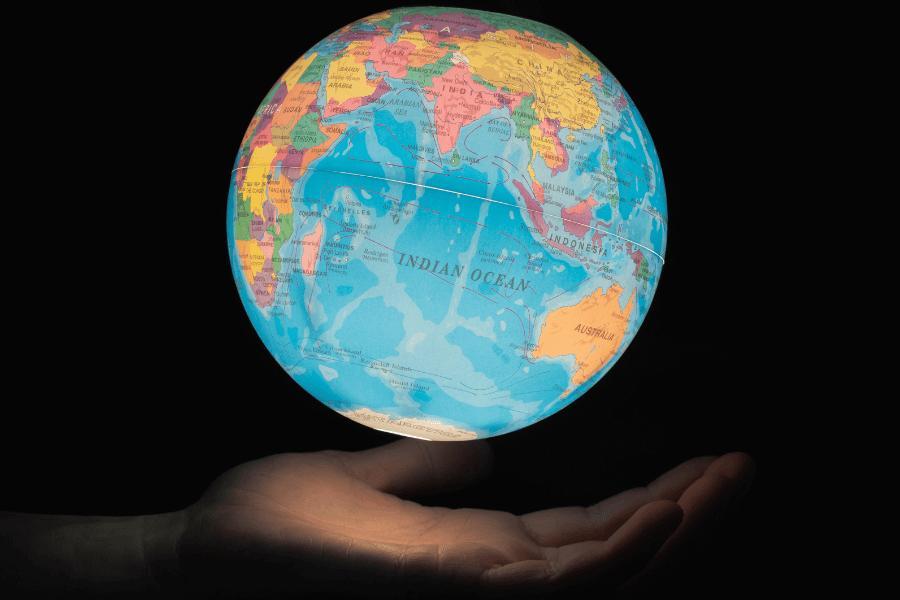HEAL (Health, Environments And Lives) 2022

DATE / TIME to
Event Series External event
Location Online
The two-day in-person and virtual HEAL Conference is an inspirational forum for knowledge transfer, scientific debate, and community-wide conversations about research and policy priority setting on human health, climate and environmental change solutions in Australia. Live events took place across Australia.
This highly innovative conference has a hybrid multi-node format, which stimulates debate, provides in-person interaction and networking opportunities for participants in eight nodes covering all Australian jurisdictions, as well as an enhanced online experience for virtual participation from Australia and overseas.
While environmental and climate change pose great challenges to health, there is great potential for well-targeted mitigation and adaptation policies to reduce environmental impacts, protect and improve human health, build health system and community resilience, and progress towards a healthier, fairer and more sustainable world. This involves urban, rural and remote health interventions that strengthen the resilience of communities, and the health sector in particular, to environmental change.
Respectful integration of Aboriginal and Torres Strait Islander and western concepts of health and related knowledge systems is essential to this effort, recognising that Aboriginal and Torres Strait Islander concepts of health holistically encompass connection to culture, family, language, community, and Country.
HEAL 2022
The objective of the HEAL 2022 Conference was to provide an inspirational forum for knowledge transfer, scientific debate, and community-wide conversations about research and policy priority setting on human health, climate and environmental change solutions in Australia.
Plenary speakers and panellists
- Assoc Prof Linda Payi Ford, College of Indigenous Futures, Education & Arts, Charles Darwin University
- Prof Anne Poelina, Co-Chair of Indigenous Studies Nulungu Institute, University of Notre Dame
- Prof Sotiris Vardoulakis, Director of HEAL Network, Australian National University
- Dr Nick Watts, Chief Sustainability Officer, NHS England
- Professor Raina MacIntyre, Head of Biosecurity Program, Kirby Institute, UNSW
- Professor Petra Tschakert, Professor of Geography and Global Futures, Curtin University
- Dr Janine Mohamed, CEO of Lowitja Institute
- Professor Kristie Ebi, Center for Health and the Global Environment, University of Washington
- Assoc Prof Veronica Matthews, University Centre for Rural Health, University of Sydney
- Professor Eugenie Kayak, Professor in Sustainable Healthcare, Melbourne Medical School
- Prof Mark Patrick Taylor, Chief Environmental Scientist, EPA Victoria
- Professor Kristin Aunan, Research Director for the Climate Impacts Group at CICERO, Norway
- Dr Diarmid Campbell-Lendrum, Head of WHO Climate Change Unit, Geneva
- Dr Donald Wilson, Associate Dean Research, College of Medicine, Nursing and Health Sciences, Fiji National University
Conference themes
- Aboriginal and Torres Strait Islander health and knowledge translation for building resilience to environmental change
- Health system resilience to environmental change and sustainability
- Bushfires, air pollution, heatwaves, and other extreme events, and their impact on physical, mental, and community health
- Food, soil and water safety and security in a changing environment
- Biosecurity, COVID-19 and emerging Infections in the context of environmental change
- Urban health, built environment and nature based solutions
- Rural and remote health
- Clean energy solutions for healthy environments and lives
- At-risk populations, early life effects and life-course solutions
- Data and decision support systems for environmental health applications
- Science communication, citizen science, and risk perception
- Planetary health equity
- Environmental change and health in the Asia-Pacific region
Several members of the Prevention Centre network are involved with and support HEAL.
Read more on the HEAL website